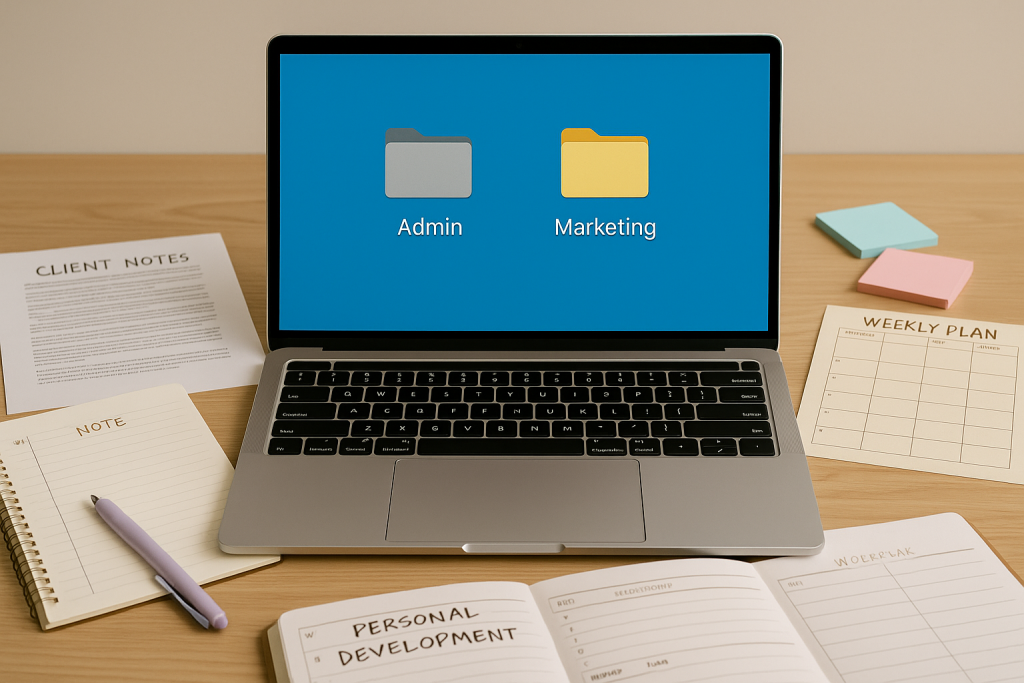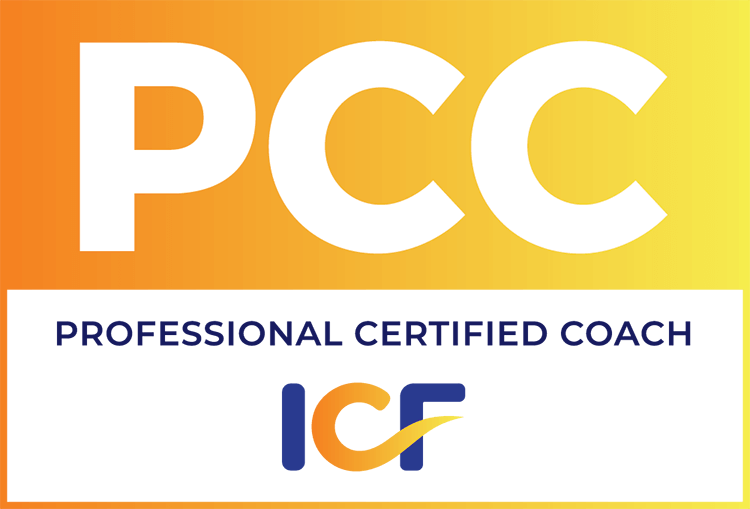As coaches, we’re natural givers. We love seeing clients break through barriers, gain clarity, and grow. But let’s be honest—when we’re pouring out so much time and energy, our own well-being and business can easily take a back seat. That’s why time management for coaches isn’t just about productivity; it’s about protecting your energy so you can keep showing up as your best self—for your clients and for you.
Here are some practical strategies to help you practice good time management as a professional coach:
1. Begin With Your Most Important Task.

Start each day by tackling the most important item on your to-do list first. (Hint, this isn’t checking email.)
This might seem challenging—especially if you’re tempted to start with quicker, easier tasks—but there’s real psychology behind why this approach works.
Completing an important task early in your day gives you an immediate sense of achievement. Your brain rewards you by releasing feel-good chemicals like dopamine, giving you an energy boost to handle the rest of your day’s responsibilities with confidence.
On the other hand, postponing significant tasks often leads to anxiety and the risk of never getting to them at all. By prioritizing these key tasks, you’ll reduce stress and boost your overall productivity.
2. Set Realistic Time Limits.

As coaches, we know that open-ended goals rarely lead to success—this is equally true with daily tasks. Whether it’s administrative work, creating new marketing content, or even professional development, assign specific times and time limits to each activity.
For example, if you’re preparing a workshop and estimate it will take 10 hours, break it into manageable daily blocks, like two hours per day over five days. Be sure to include buffers for unexpected interruptions or tasks that take longer than anticipated. This structured approach prevents overwhelm and promotes a balanced workload.
3. Embrace the Power of “No.”

This is often the hardest one for many coaches, myself included. Saying “no” feels uncomfortable, especially when we want to support everyone around us. But the truth is, we can’t do everything, darn it.
I’ve had to learn this lesson myself—sometimes the hard way. It’s still an active learning journey for me. Saying “no” to clients who request extra time or squeezing in appointments is difficult, especially since they’ve paid for my coaching. But as I often remind myself and my clients, “you have to put your own oxygen mask on first.”
One tool that has significantly helped me in this area is my booking calendar software. It allows me to establish firm boundaries by pre-blocking administrative tasks, personal appointments, and downtime. Recently, a client emailed me, concerned that she couldn’t find an available spot for two weeks. I felt an immediate impulse to squeeze her in somewhere, but I resisted that urge, trusting the boundaries I’d set. The client ultimately found another suitable time, and my stress levels stayed manageable.
This disciplined scheduling not only keeps me grounded but also clearly communicates my availability, simplifying scheduling for my clients as well.
4. Allow Time Between Appointments.

Scheduling appointments or sessions back-to-back can be tempting, especially if your coaching practice is thriving. However, it’s crucial to give yourself small breaks between client sessions.
Even brief moments of rest or reflection can rejuvenate your mind and prevent mental exhaustion—often more draining than physical fatigue. During these breaks, engage in something relaxing or enjoyable, or simply take some deep breaths and let your mind rest. You’ll be surprised how these short breaks enhance your effectiveness and presence with clients.
5. Ditch Multitasking.

Despite popular belief, multitasking doesn’t make you more productive—it actually makes you less effective. Trying to handle multiple tasks simultaneously often results in subpar outcomes and increased frustration, particularly if you have perfectionist tendencies.
Instead, focus your full attention on one task at a time. You’ll achieve higher-quality results, maintain a clearer mind, and ultimately save yourself time and frustration.
6. Schedule Time for the “Behind-the-Scenes” Work.

A common pitfall I’ve seen for the coaches I mentor is neglecting to schedule time for everything beyond direct client interactions. Coaching isn’t just about sessions—it’s about all the essential administrative tasks, marketing efforts, personal reflection, professional development, and mentor coaching.
If you don’t intentionally schedule these tasks, they quickly pile up. Ask me how I know. 🤦🏼♀️ The resulting overwhelm can lead to frustration, guilt, and eventually burnout. To prevent this, schedule regular blocks of time on your calendar dedicated exclusively to non-client activities.
7. Prioritize Personal Time Off.

The temptation to work continuously can be strong, particularly when you love your work and want to grow your coaching practice. But consistently sacrificing personal or family time to get more done inevitably backfires.
Taking time off—even short breaks—helps you return refreshed and more productive. Whether it’s a weekend away, a day off midweek, or an actual vacation, prioritize downtime. Your body, mind, and ultimately your clients will thank you for it.
Final Thoughts
At the end of the day, how you manage your time as a coach directly shapes your impact. Time management for coaches isn’t just about checking more boxes—it’s about setting boundaries, avoiding burnout, and creating space to thrive. When you protect your own energy, you show up with more clarity, confidence, and presence for the people you serve. Remember, prioritizing yourself isn’t selfish—it’s smart coaching.
👉 “Ready to reclaim your time and sharpen your coaching skills? Book a free Discovery Call and let’s talk.



